Product Name
RXSOL-22-2205-050
Product Type
Muriatic Acid
Company Details:
RX MARINE INTERNATIONAL
105, A wing , BSEL , TECH PARK.
VASHI ,NEW BOMBAY 400703 INDIA
Phone
+91 22 65113333 / 5555 / 9999
Fax
+91 22 2781 1318 :::AOH :0091 9821214367
Email
mail@rxmarine.com
Ingredient
CAS No
Percent
HYDROGEN CHLORIDE
7647-01-0
9 – 36
Water
7732-18-5
63-91
NFPA RATINGS (SCALE 0-4)
HEALTH = 3
FIRE = 0
REACTIVITY = 0
HMIS RATINGS (SCALE 0-4)
HEALTH = 3
FLAMMABILITY = 0
REACTIVITY = 0
EMERGENCY OVERVIEW
COLOR
colorless
PHYSICAL FORM
liquid
ODOR
pungent odor
SIGNAL WORD
DANGER
MAJOR HEALTH HAZARDS
CAUSES BURNS TO THE RESPIRATORY TRACT, SKIN, EYES AND
GASTROINTESTINAL TRACT
CAUSES PERMANENT EYE DAMAGE. MAY BE HARMFUL OR FATAL IF
SWALLOWED.
PHYSICAL HAZARDS
May spatter or generate heat when mixed with water. Contact with metals may evolve
flammable hydrogen gas.
PRECAUTIONARY STATEMENTS
Do not breathe vapor or mist. Do not get in eyes, on skin, or on clothing.
Do not taste or swallow. Wash thoroughly after handling. Use only with adequate ventilation.
SHORT TERM EXPOSURE
burns, eye damage, blindness
LONG TERM EXPOSURE
to our knowledge, no effects are known
INGESTION
SHORT TERM EXPOSURE
Burns
LONG TERM EXPOSURE
ingestion of harmful amounts is unlikely
CARCINOGEN STATUS
OSHA
no
NTP
no
IARC
no
Inhalation
If adverse effects occur, remove to uncontaminated area. Give artificial respiration if not breathing. If breathing is difficult, oxygen should be administered by qualified personnel. If respiration or pulse has stopped, have a trained person administer Basic Life Support (Cardio-Pulmonary Resuscitation/Automatic External Defibrillator) and CALL FOR EMERGENCY SERVICES IMMEDIATELY.
Skin Contact
Immediately flush contaminated areas with water. Remove contaminated clothing, jewelry, and shoes immediately. Wash contaminated areas with soap and water. Thoroughly clean and dry contaminated clothing and shoes before reuse. Discard footwear which cannot be decontaminated. GET MEDICAL ATTENTION IMMEDIATELY.
EYE CONTACT
Immediately flush eyes with a directed stream of water for at least 15 minutes, forcibly holding eyelids apart to ensure complete irrigation of all eye and lid tissues. Washing eyes within several seconds is essential to achieve maximum effectiveness. GET MEDICAL ATTENTION IMMEDIATELY.
INGESTION
Never give anything by mouth to an unconscious or convulsive person. If swallowed, do not induce vomiting. Give large amounts of water. If vomiting occurs spontaneously, keep airway clear. Give more water when vomiting stops. GET MEDICAL ATTENTION IMMEDIATELY.
NOTE TO PHYSICIAN
The absence of visible signs or symptoms of burns does NOT reliably exclude the presence of actual tissue damage. Probable mucosal damage may contraindicate the use of gastric lavage.
FIRE AND EXPLOSION HAZARDS
May release toxic gases.
EXTINGUISHING MEDIA
Use extinguishing agents appropriate for surrounding fire.
FIRE FIGHTING
Keep unnecessary people away, isolate hazard area and deny entry. Wear NIOSH approved positive-pressure self-contained breathing apparatus. Move containers from fire area if it can be done without risk. Avoid inhalation of material or combustion by-products. Stay upwind and keep out of low areas. Cool containers with water.
SENSITIVITY TO MECHANICAL IMPACT
Not sensitive
FLASH POINT
not flammable
HAZARDOUS COMBUSTION PRODUCTS
Thermal decomposition products or combustion: hydrogen chloride
OCCUPATIONAL RELEASE: Evacuation of surrounding area may be necessary for large spills. Wear appropriate personal protective equipment recommended in Section 8 of the MSDS. Completely contain spilled material with dikes, sandbags, etc. Shut off ventilation system if needed. Reprocess or reuse if possible. Neutralize with soda ash or dilute caustic soda. Collect with appropriate absorbent and place into suitable container. Liquid material may be removed with a vacuum truck. Keep out of water supplies and sewers. This material is acidic and may lower the pH of the surface waters with low buffering capacity. Releases should be reported, if required, to appropriate agencies. Notify Local Emergency Planning Committee and State Emergency Response Commission for release greater than or equal to RQ (U.S. SARA Section 304). If release occurs in the U.S. and is reportable under CERCLA Section 103, notify the National Response Center at (800) 424-8802 (USA) or (202) 426-2675 (USA).
STORAGE
Store and handle in accordance with all current regulations and standards. Store in rubber-lined steel, acid-resistant plastic or glass containers. Keep containers tightly closed and properly labeled. Store in a cool, dry place. Store in a well-ventilated area. Do not store in aluminum container or use aluminum fittings or transfer lines. Dike and vent storage tanks. Keep separated from incompatible substances (see Section 10 of the MSDS).
HANDLING
Avoid breathing vapor or mist. Do not get in eyes, on skin, or on clothing. Wash thoroughly after handling. When mixing, slowly add to water to minimize heat generation and spattering.
EXPOSURE LIMITS
HYDROGEN CHLORIDE, ANHYDROUS:
HYDROGEN CHLORIDE (HYROCHLORIC ACID)
5 ppm (7 mg/m3) OSHA ceiling, 2 ppm ACGIH ceiling
VENTILATION
Use closed systems when possible. Provide local exhaust ventilation where vapor or mist may be generated. Ensure compliance with applicable exposure limits.
EYE PROTECTION
Wear safety glasses with side shields. Wear chemical safety goggles with a faceshield or chemical splash hood. Provide an emergency eye wash fountain and quick drench shower in the immediate work area.
CLOTHING
Wear chemical resistant clothing and rubber boots when potential for contact with the material exists. Always place plants legs over boots.
GLOVES
Wear appropriate chemical resistant gloves.
PROTECTIVE MATERIAL TYPES
neoprene, nitrile, polyvinyl chloride (PVC), rubber, Kappler ® CPF3, Tychem
IMMEDIATELY DANGEROUS TO LIFE OR HEALTH
50 ppm
RESPIRATOR
Where vapor concentration exceeds or is likely to exceed applicable exposure limits, a NIOSH approved respirator with acid gas canister is required. When an air-purifying respirator is not adequate for spills and/or emergencies of unknown concentrations, a NIOSH approved self-contained breathing apparatus or airline respirator with full-face piece is required. A respiratory protection program that meets 29 CFR 1910.134 must be followed whenever workplace conditions warrant use of a respirator.
PHYSICAL STATE
liquid
Appearance
Clear.
COLOR
colorless
Odor
pungent odor
MOLECULAR WEIGHT
36.46
MOLECULAR FORMULA
HCl
BOILING POINT
140-221F (60.0 – 105 C)
FREEZING POINT
-29 to 5 F (-34 to –15 C)
VAPOR PRESSURE
14.6 – 80 mmHg @ 20 C
VAPOR DENSITY (air = 1)
1.3 @ 20 C
SPECIFIC GRAVITY (water = 1)
1.05 – 1.18
BULK DENSITY
8.75 – 9.83 lbs/gal
WATER SOLUBILITY
100%
PH
2 (0.2% solution)
VOLATILITY
9 – 36% by volume
ODOR THRESHOLD
0.3 ppm (causes olfactory fatigue)
EVAPORATION RATE
<1.00 (butyl acetate = 1)
COEFFICIENT OF WATER/OIL DISTRIBUTION
n/a
REACTIVITY
Stable at normal temperatures and pressure.
CONDITIONS TO AVOID
Avoid heat, flames, sparks and other sources of ignition. Contact with water may produce a strong exothermic reaction with spattering. Contact with metals may evolve flammable hydrogen gas. Hydrogen chloride may react with cyanide, forming lethal concentrations of hydrocyanic acid.
INCOMPATIBILITIES
metals, alkalis (such as sodium hydroxide), mercuric sulfate, perchloric acid, carbides of calcium, cesium, rubidium, acetylides of cesium and rubidium, phosphides of calcium and uranium, lithium silicide.
HAZARDOUS DECOMPOSITION
Thermal decomposition products or combustion: hydrogen chloride
POLYMERIZATION
will not polymerize
MURIATIC ACID (ALL GRADES)
TOXICITY DATA
Hydrochloric Acid: 900 mg/kg oral-rabbit LD50; 1108 ppm/1 hour(s) inhalation-rat; 3124 ppm/1 hour(s) inhalation-rat LC50. Rinsed Draize Test: 5 mg/30 second(s) rabbit-eye mild. Standard Draize Test: 4% / 24 hour(s) skin-human mild. Inhalation will cause severe irritation and possible burns with coughing and choking. If inhaled deeply, edema and hemorrhage of the lungs may occur. Levels of 10-35 ppm may cause irritation of throat and 50-100 ppm is unbearable for 1 hour. Inflammation, destruction of nasal passages and breathing difficulties may occur with higher concentration and/or erosion of teeth. Contact with eyes causes immediate severe irritation with possible burns, permanent visual impairment, or total loss of sight. Contact with fumes or liquid may produce corrosive burns. Dermal exposure also results in irritation, pain, dermatitis, and ulceration. Ingestion may cause immediate burns of the mouth, esophagus, and stomach. Ingestion may cause intense pain, nausea, vomiting, bleeding, circulating collapse, shock and death.
MEDICAL CONDITIONS AGGRAVATED BY EXPOSURE
RE: respiratory system (including asthma and other breathing disorders)
ECOTOXICITY DATA
FISH TOXICITY
Hydrochloric Acid: 178 mg/L LC50 Goldfish (1 to 2 hour survival time); 100-300 mg/L LC50 Shrimp. 3.6 mg/L 48 hour(s) (static) LC50 Bluegill. This material is believed to be toxic to aquatic life.
FATE AND TRANSPORT
BIODEGRADATION
This material is inorganic and not subject to biodegradation.
PERSISTENCE
This material is believed not to persist in the environment. This material is believed to exist in the disassociated state in the environment. SOIL: Hydrogen chloride will sink into the soil. The acid will dissolve some soil material (in particular, anything with a carbonate base) and will be somewhat neutralized. The remaining portion is thought to transport downward to the water table. WATER: Dissociates almost completely and will be neutralized by natural alkalinity and carbon dioxide.
BIOCONCENTRATION
This material is believed not to bioaccumulate.
Reuse or reprocess if possible. Dispose in accordance with all applicable regulations.
Subject to disposal regulations
regulations: U.S. EPA 40 CFR 262.
Hazardous Waste Number(s)
D002.
U.S. DOT 49 CFR 172.101
PROPER SHIPPING NAME
Hydrochloric acid solution
ID NUMBER
UN1789
HAZARD CLASS OR DIVISION
8
PACKING GROUP
II
LABELING REQUIREMENTS
8
DOT HAZARDOUS SUBSTANCE(S)
Hydrochloric acid 5000 lb(s) (2270 kg(s)
CANADIAN TRANSPORTATION OF DANGEROUS GOODS
SHIPPING NAME
Hydrochloric acid solution
UN NUMBER
UN1789
CLASS
8
PACKING GROUP/RISK GROUP
II
U.S. REGULATIONS
CERCLA SECTIONS 102a/103 HAZARDOUS SUBSTANCES (40 CFR 302.4)
HYDROGEN CHLORIDE
5000 LBS RQ (liquid)
CHLORINE
10 LBS RQ
SARA TITLE III SECTION 302 EXTREMELY HAZARDOUS SUBSTANCES (40 CFR 355.30)
HYDROGEN CHLORIDE
500 LBS TPQ (gas)
SARA TITLE III SARA SECTIONS 311/312 HAZARDOUS CATEGORIES (40 CFR 370.21)
ACUTE
yes
CHRONIC
no
FIRE
no
REACTIVE
no
SUDDEN RELEASE
no
SARA TITLE III SECTION 313 (40 CFR 372.65)
HYDROGEN CHLORIDE
aerosol form only
This product contains a toxic chemical or chemicals subject to the reporting requirements of Section 313 of Title III of the Superfund Amendments and Reauthorization Act of 1986 and 40 CFR 372. Refer to Section 3.
OSHA PROCESS SAFETY (29 CFR 1910.119)
HYDROGEN CHLORIDE: 5000 LBS TO (gas)
CHLORINE
1500 LBS TQ
FDA
This material has Generally Recognized as Safe (GRAS) status under specific FDA regulations. Additional information is available from the Code of Federal Regulations (CFR) which is accessible on the FDA’s website.
STATE REGULATIONS
California Proposition 65
This product may contain contaminants known to the State of California to cause cancer or reproductive toxicity as listed under Proposition 65 State Drinking Water and Toxic Enforcement Act.
NEW JERSEY WORKER AND COMMUNITY RIGHT TO KNOW
REPORTING REQUIREMENT
WATER
7732-18-5 63 – 91%
HYDROGEN CHLORIDE 7647-01-0
936%
RIGHT TO KNOW HAZARDOUS SUBSTANCE LIST
HYDROGEN CHLORIDE 7647-01-0 9-36% CHLORINE 7782-50-5 0 – 50 ppm
SPECIAL HEALTH HAZARD SUBSTANCE LIST
HYDROGEN CHLORIDE 7647-01-0 9-36%
PENNSYLVANIA RIGHT TO KNOW
REPORTING REQUIREMENT
WATER 7732-18-5 63 – 91%
HYDROGEN CHLORIDE 7647-01-0 0 36%
HAZARDOUS SUBSTANCE LIST
HYDROGEN CHLORIDE 7647-01-0 9-36%
ENVIRONMENTAL HAZARDOUS SUBSTANCE LIST
HYDROGEN CHLORIDE 7647-01-0 9-36%
SPECIAL HAZARDOUS SUBSTANCE LIST
not regulated
CANADIAN REGULATIONS
WHMIS CLASSIFICATION: E
NATIONAL INVENTORY STATUS
U.S. INVENTORY (TSCA)
All the components of this substance are listed on or are exempt from the inventory.
TSCA 12(b) EXPORT NOTIFICATION
not listed
CANADA INVENTORY (DSL/NDSL)
All components of this product are listed on the DSL.
IMPORTANT: The information presented herein, while not guaranteed, was prepared by competent technical personnel and is true and accurate to the best of our knowledge. NO WARRANTY OF MERCHANTABILITY OR OF FITNESS FOR A PARTICULAR PURPOSE, OR WARRANTY OR GAURANTY OF ANY OTHER KIND, EXPRESS OR IMPLIED, IS MADE REGARDING PERFORMANCE, SUITABILITY, STABILITY OR OTHERWISE. The information included herein is not intended to be all-inclusive as to the appropriate manner and/or conditions of use, handling and/or storage. Factors pertaining to certain conditions of storage, handling, or use of this product may involve other or additional safety or performance considerations. While our technical personnel will be happy to respond to questions regarding safe handling and use procedures, safe handling and use remains the responsibility of the customer. No suggestions for use are intended to, and nothing herein shall be construed as a recommendation t, infringe any existing patents or violate any laws, rules, regulations or ordinances of any governmental entity.
|
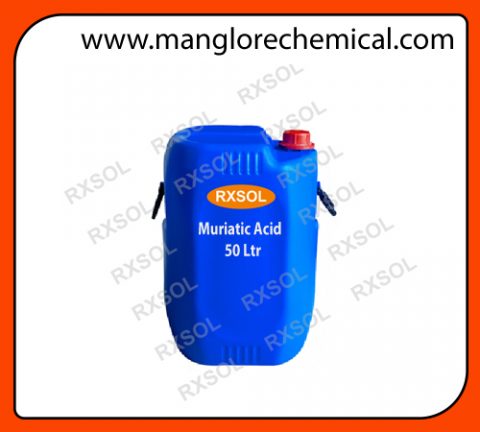




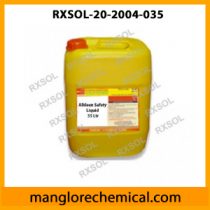
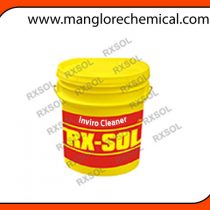
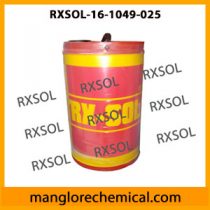
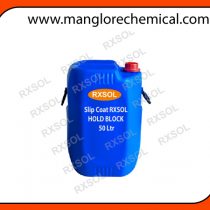
Reviews
There are no reviews yet.